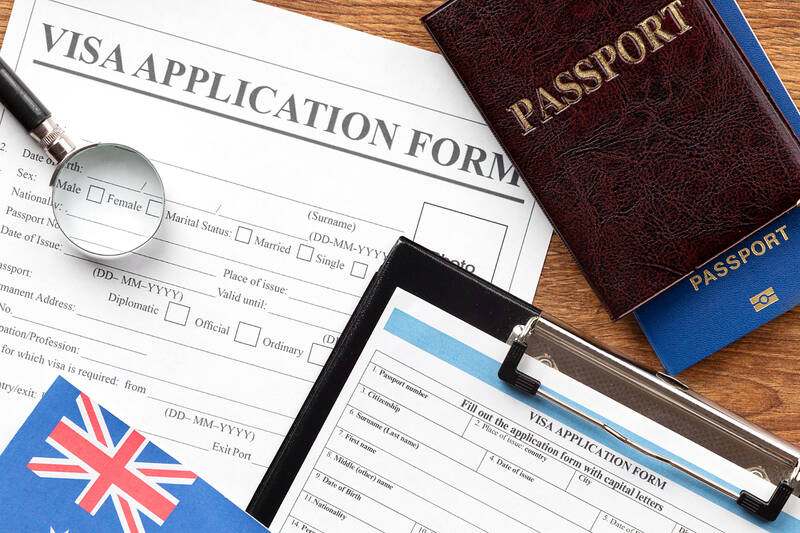Australia’s strict immigration policies have long been criticized, particularly for how they treat people with disabilities. Having been residents of Australia for years, Scottish Laura Currie and her Italian partner, Dante Vendittelli, recently experienced the impact of these immigration policies. Their son Luca, born in Australia and diagnosed with cystic fibrosis, became the reason their residency application was denied due to the anticipated high healthcare costs. Had Luca been healthy, there would have been no objections to their permanent residency. This case not only highlights discrimination against disabled individuals, but also raises questions about fairness and inclusion within Australia’s immigration system.
For decades, Australia has been giving migrants with disabilities the cold shoulder, a policy rooted in its Migration Act of 1958. Despite years of revisions, current regulations still mandate rigorous health assessments for nearly all visa categories, capping acceptable medical expenses at AU$86,000 over ten years. Regardless of how long an individual has lived in Australia, where they were born, or their financial ability to handle medical costs, they could face visa denial or deportation. This risk arises if the government perceives their future healthcare costs as excessive.
Defending this stance, government officials argue that such policies are necessary to manage public resources and maintain a balanced healthcare system. Not everyone is convinced by this argument, however. Disabled rights advocates and critics view these policies as discriminatory violations of fundamental human rights that are at odds with Australia’s proclaimed values of equality and inclusivity. They assert that the immigration system treats disabled applicants as if they were mere burdens, rather than individuals with potential to contribute.

Photo: Freepik / 照片:Freepik提供
The growing opposition and calls for reform across Australia’s political arena indicate a pressing need for change. Truly promoting equality requires a critical reevaluation of these immigration policies. If left unaddressed, the continued exclusion of disabled migrants will perpetuate social biases and damage Australia’s reputation as an inclusive nation.
澳洲嚴格的移民政策長期以來備受批評,特別是對待身心障礙人士的方式。蘇格蘭人蘿拉.柯瑞和她的義大利伴侶但丁.范迪特利已成為澳洲居民多年,但他們最近親身體驗到這些移民政策的影響。他們在澳洲出生並被診斷患有囊腫纖維症的兒子盧卡,成為他們居留申請被拒絕的原因,理由是預期的高額醫療費用。如果盧卡身體健康,他們的永久居留權就不會遭到反對。這個案例不僅突顯了對身心障礙者的歧視,也引發了對澳洲移民制度內公平和包容的質疑。
幾十年來,澳洲一直對有身心障礙的移民者冷眼相待,這一政策源自西元 1958 年的《移民法》。儘管經過多年的修訂,目前的法規仍然要求幾乎所有簽證類別進行嚴格的健康評估,並將可接受的醫療費用上限定為十年內不得超過 86,000 澳元。不論一個人在澳洲居住了多久、在哪裡出生,或是有沒有財務能力承擔醫療費用,他們都可能面臨簽證被拒簽或驅逐出境。如果政府認為他們未來的醫療費用過高,就會出現這種風險。
政府官員為此立場辯護,認為此類政策對於管理公共資源和維持平衡的醫療體系是必要的。然而,並非所有人都接受這個論點。身心障礙的權利倡導者和批評者認為這些政策是對基本人權的歧視性侵犯,這與澳洲宣稱的平等和包容性價值觀相矛盾。他們主張,移民制度將身心障礙的申請人視為純粹的負擔,而不是有潛力做出貢獻的個體。
在澳洲政壇日益增長的反對聲浪和改革呼聲,顯示出變革的迫切需求。真正促進平等需要對這些移民政策進行關鍵性的重新評估。如果不加以解決,持續排除身心障礙移民的做法將使社會偏見長期存在,並損害澳洲作為包容性國家的聲譽。
MORE INFORMATION
cystic fibrosis 囊腫纖維症(為一種遺傳性疾病,主要影響呼吸和消化系統,患者會有多處器官及外分泌腺異常)
rigorous adj. 嚴格的;嚴密的
deportation n. 驅逐出境
discriminatory adj. 歧視的;差別對待的
perpetuate vt. 使持續;使長存
KEY VOCABULARY
1. resident n. 居民;住戶 residency n. 居留權;定居
Ken was born in Hong Kong, but he has been a resident of Taiwan for almost a decade.
肯在香港出生,但他身為臺灣居民已將近十年了。
2. diagnose vt. 診斷
Leo was diagnosed with diabetes during a routine health checkup.
李歐在例行的健康檢查中被診斷出患有糖尿病。
3. disabled adj. 身心障礙的;失能的
The parking lot has reserved spaces for disabled drivers near the entrance.
停車場在入口附近為身障駕駛預留了車位。
4. inclusion n. 包容;包含;納入
The inclusion of diverse voices in meetings can lead to more innovative solutions.
在會議中對不同聲音的包容可以帶來更具創新性的解決方案。
5. migrant n. 移民;遷徙者 migration n. 移居;遷徙
Many migrants face challenges when adapting to new cultures and languages.
許多移民在適應新文化和語言時面臨挑戰。
6. denial n. 拒絕;剝奪;否認
The athlete faced denial of entry to the competition due to missing documents.
這名運動員因文件不齊而被拒絕參加比賽。
7. stance n. 立場;觀點;站立姿勢
The politician made a speech to share his stance on the proposed law.
這位政治人物發表演說分享他對這項草案的立場。
8. at odds 與……矛盾;與……意見不一致
Dan was at odds with his boss over how to handle the project.
丹和他的老闆在如何處理這個專案上意見不合。
9. proclaim vt. 宣布;聲明;顯示
The king proclaimed that all citizens would have to pay higher taxes.
國王宣布所有公民都必須繳納更高額的稅金。
學習音檔: https://magazine.english4u.net/Magdata/menu/t2oce
《空中美語》雜誌APP免費下載: https://www.english4u.net/apps/index.aspx
免費收聽當月《空中美語》雜誌課文朗讀及解析 !
文章由AMC空中美語授權使用: https://www.english4u.net

★ Bilingual Story is a fictionalized account. 雙語故事部分內容純屬虛構。 “Any New Year’s resolutions?” he asked. Lena put her coffee down. “Yeah,” she said. “To get in shape.... round is a shape, right?” Mark chuckled. “I support this. Fully achievable. Low risk.” “Thanks,” she smiled and lovingly rubbed her round belly. “I like a resolution I can’t fail.” “Funny thing is, I was thinking about getting round too.” Lena nodded her head in approval, “You could put some meat on those skinny bones of yours.” Mark shook his head, “Not that kind of round. Wheel-of-Life round.” She raised an eyebrow.

Skating is a popular recreational and competitive activity that involves sliding over surfaces using specially designed footwear. Its origins date back over 1,000 years to Northern Europe, where people first strapped animal bones to their feet to move across frozen lakes and rivers. In the 17th century, the Dutch transformed skating into a leisure activity. They also replaced bone blades with metal, leading to the creation of modern ice skates. Today, ice skating is enjoyed as a global sport and an exciting pastime by people of all ages. Figure skating is one of the best-known and most graceful forms of skating.

對話 Dialogue 清清:最近天氣越來越冷,感覺很容易感冒,要不要一起去吃薑母鴨或是羊肉爐? Qīngqing: Zuìjìn tiānqì yuèláiyuè lěng, gǎnjué hěn róngyì gǎnmào, yào bú yào yìqǐ qù chī jiāngmǔyā huòshì yángròulú? 華華:最近我覺得有點累,想吃薑母鴨,可是又怕一下子吃太補會上火。 Huáhua: Zuìjìn wǒ juéde yǒudiǎn lèi, xiǎng chī jiāngmǔyā, kěshì yòu pà yíxiàzi chī tài bǔ huì shànghuǒ. 清清:那我們去喝香菇雞湯吧,不太容易上火,喝了也會很暖和。 Qīngqing: Nà wǒmen qù hē xiānggū jītāng ba, bú tài róngyì shànghuǒ, hē le yě huì hěn nuǎnhuo. 華華:聽起來不錯!你們家平常冬天都吃什麼進補? Huáhua: Tīng qǐlái búcuò! Nǐmen jiā píngcháng dōngtiān dōu chī shénme jìnbǔ? 清清:我家都煮麻油雞,吃完整個人手腳都會熱起來。我也很久沒喝香菇雞湯了,正好可以去打打牙祭。 Qīngqing: Wǒ jiā dōu zhǔ máyóujī, chī wán zhěnggè rén shǒujiǎo dōu huì rè qǐlái. Wǒ yě hěn jiǔ méi hē xiānggū jītāng le, zhènghǎo kěyǐ qù dǎ dǎ yájì. 華華:可是我最近在減肥,會不會吃得太補,肉又長回來了? Huáhua: Kěshì wǒ zuìjìn zài jiǎnféi, huì bú

A: South Korea’s Golden Disc Awards ceremony is taking place at the Taipei Dome on Saturday. Eighteen acts are taking to the stage, including Blackpink’s Jennie. B: The hottest boy group CORTIS is also performing. I can’t wait to see James, the Taiwanese member of the band, perform. A: Who else are playing at the K-pop show? B: This year’s lineup is stacked, including: Allday Project, ARrC, Ateez, Boynextdoor, Close Your Eyes, Enhypen, IVE, Izna, KiiiKiii, Le Sserafim, Monsta X, NCT Wish, Stray Kids, TWS, Zerobaseone and Zozazz. A: SKZ, Enhypen and Ateez dominated Billboard’s 2025 Year-End World